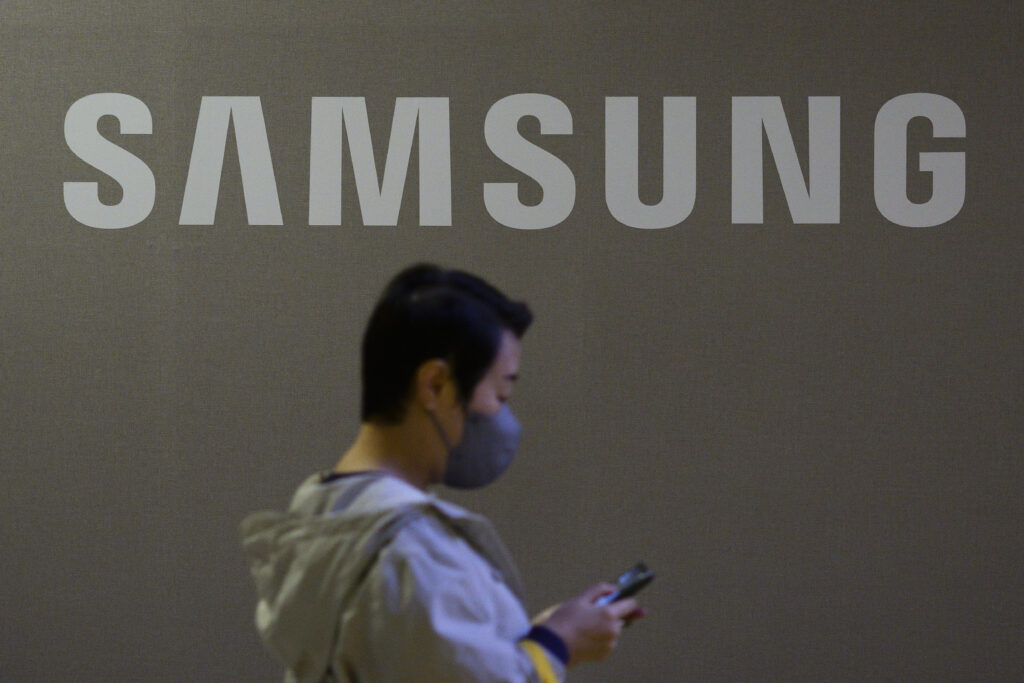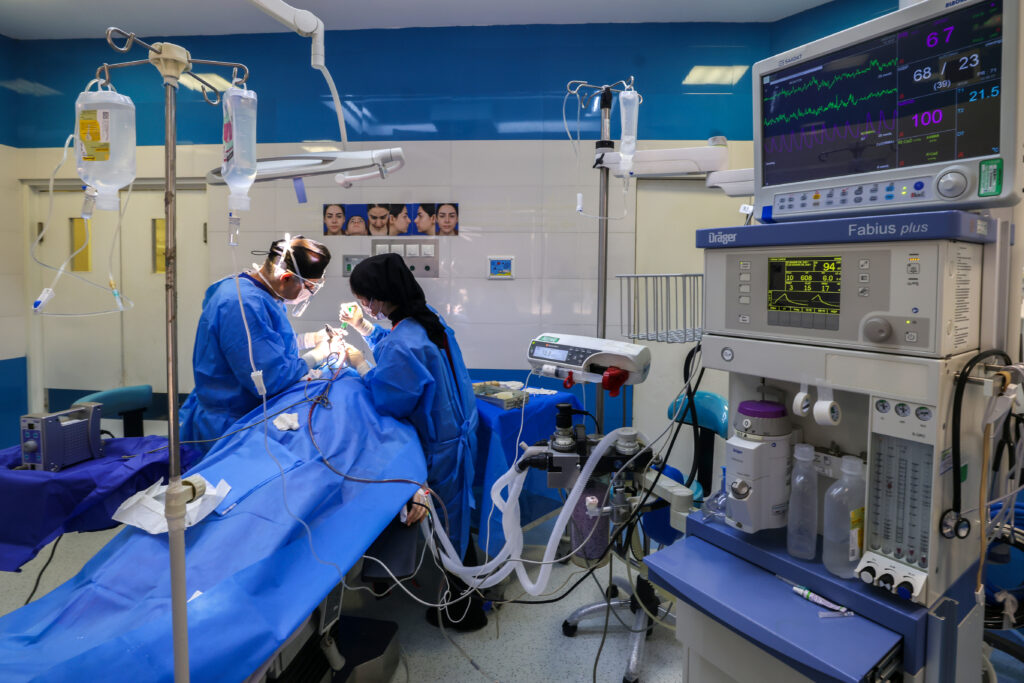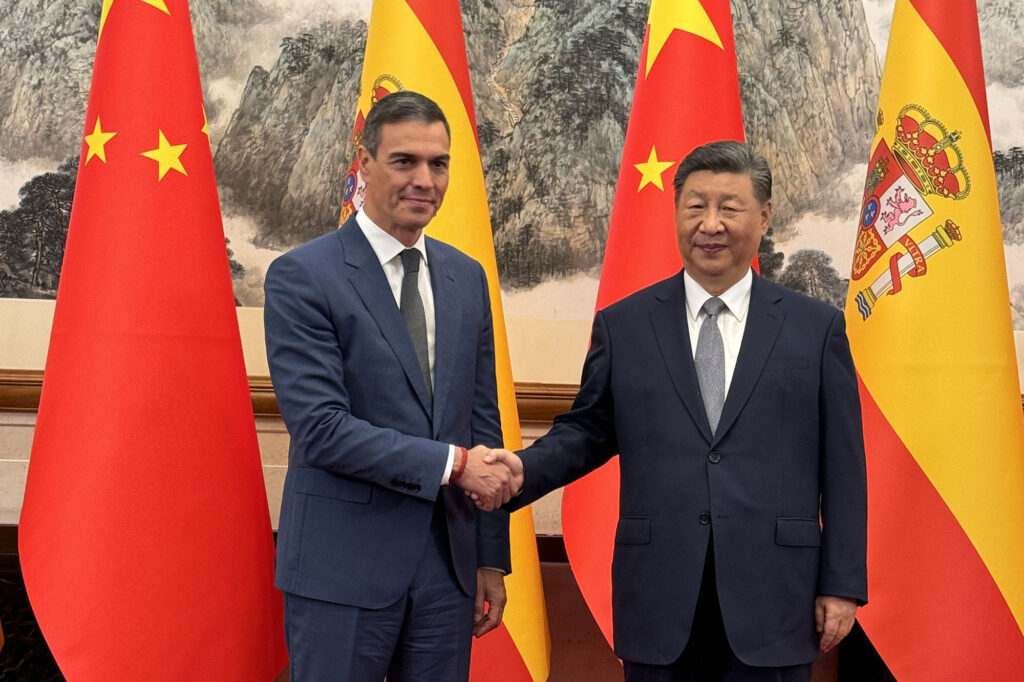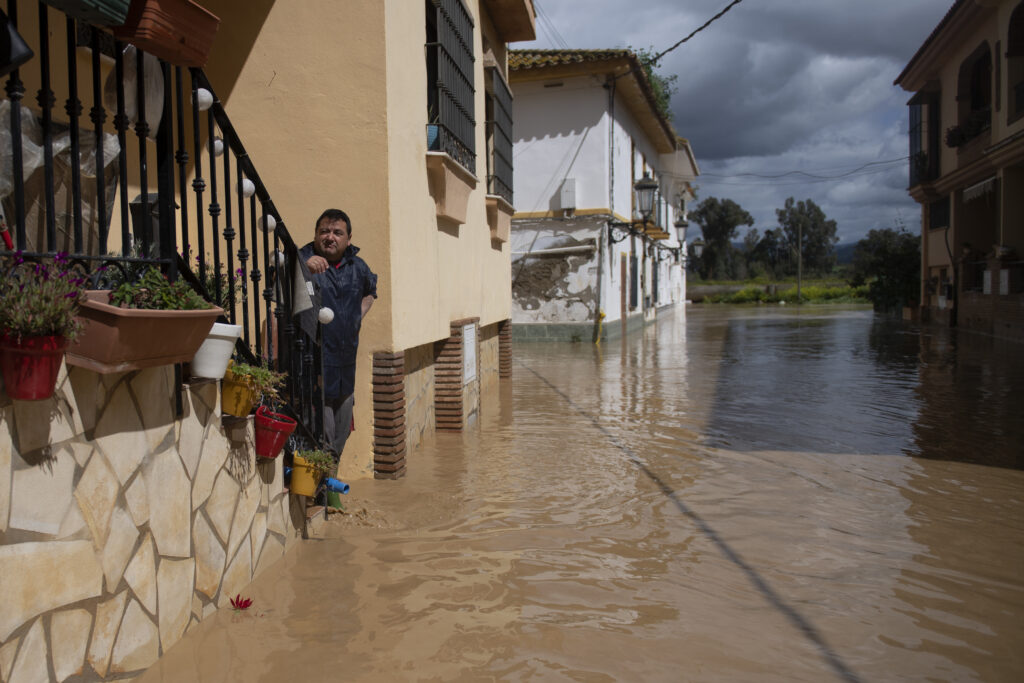AFP Asia Business
Samsung forecast beats market expectations for first quarter
Samsung Electronics on Tuesday posted highest ever figures for its first quarter sales forecast and said it predicted a better-than-expected performance for profits, beating market expectations.The firm is the flagship subsidiary of South Korean giant Samsung Group, by far the largest of the family-controlled conglomerates that dominate business in Asia’s fourth-largest economy.The tech giant said …
Samsung forecast beats market expectations for first quarter Read More »
Nose job boom in Iran where procedure can boost social status
All of the women in Iranian model Azadeh’s family have had nose surgeries, each feeling the pressure to conform with Western beauty standards in a country where female bodies are heavily policed.To Azadeh, smoothing out the bump in what Iranians would call the “Persian nose” she was born with proved a lucrative investment.Since the 1979 Islamic revolution, Iranian women have been required to dress modestly and cover their hair, and the beauty industry has become almost entirely centred on the face.Having rhinoplasty — a nose job — can make a major difference, Azadeh told AFP.”After the operation, not only have I earned myself a modelling job with better social standing but I’m also earning three times more and I’m more respected by clients,” she said.Azadeh, 29, asked that her surname be withheld because women models can face social pressure in Iran.According to the US-based International Society of Aesthetic Plastic Surgery (ISAPS), more than 264,000 cosmetic operations were performed in Iran in 2023, with rhinoplasty being the most common.- A cultural trend -Across Tehran and other Iranian cities, brightly coloured billboards advertise beauty clinics and cosmetic procedures, offering promises of sculpted noses, flawless skin and perfect teeth.Many people with bandaged noses can be seen on the streets, a testament to the popularity of rhinoplasty.”It has become more of a cultural trend,” said rhinoplasty surgeon Hamidreza Hosnani who performs up to 20 operations a week at his well-equipped clinic in the capital.And that trend has evolved, becoming more and more tied to social identity and status, especially as more women have defied the strict dress code.Such defiance became more marked following the mass protests sparked by the 2022 death in custody of 22-year-old Iranian Kurd Mahsa Amini.In Iran, where the minimum wage is around $100, basic rhinoplasty costs up to $1,000 — significantly cheaper than in other countries, Hosnani said.Millions of Iranians have long struggled with soaring prices and a plunging currency, driven in part by years of international sanctions.”I even had to borrow the money required for the operation from my friends and family, but the money was well spent, and it was completely worth it,” Azadeh said.Reyhaneh Khoshhali, a 28-year-old surgical assistant, had the operation four years ago, and regrets not having it sooner.”My nose really did not look good aesthetically and I wanted to be more beautiful,” she said.”If I could go back, I would have had the operation earlier.”- Unauthorised clinics -For years, Iran has hosted highly advanced medical centres, even becoming a destination for foreigners seeking high-quality and affordable cosmetic surgery.However, the procedures can also come with risks.The Iranian authorities have repeatedly warned about the growing number of unauthorised clinics performing cosmetic procedures.In February, a dozen unlicenced practitioners were arrested and several operating theatres in Tehran’s Apadana Hospital were closed because of unauthorised cosmetic procedures, the health ministry said.In 2023, three women died in a single day — November 7 — during cosmetic surgery in three separate incidents in Tehran, media reported at the time.Ava Goli has yet to undergo her rhinoplasty operation, and said that finding a reliable doctor involved some research.”I saw some people whose nose job did not look good… and yeah, it really made me scared at times,” the 23-year-old told AFP.Yet the demand for cosmetic surgery in Iran remains high — and the pressure to keep up is not limited to women. Bahador Sayyadi, a 33-year-old accountant, said he had to borrow money so he could have a hair transplant.”My financial situation isn’t great, but thanks to a loan I got recently, I will be doing the procedure just in time before my wedding,” he said. “Men should also take care of themselves these days, just like women.”
Spain PM heads to China, Vietnam as US tariff blitz bites
Spanish Prime Minister Pedro Sanchez aims to open new market opportunities during a visit to China and Vietnam this week on the heels of US President Donald Trump’s sweeping tariffs.The trip comes as the European Union rethinks its global trading relationships amid turmoil caused by the US import duties announced last week that have sent …
Spain PM heads to China, Vietnam as US tariff blitz bites Read More »
Global temperatures at near historic highs in March: EU monitor
Global temperatures hovered at historic highs in March, Europe’s climate monitor said on Tuesday, prolonging an extraordinary heat streak that has tested scientific expectations.In Europe, it was the hottest March ever recorded by a significant margin, said the Copernicus Climate Change Service, driving rainfall extremes across a continent warming faster than any other.The world meanwhile saw the second-hottest March in the Copernicus dataset, sustaining a near-unbroken spell of record or near-record-breaking temperatures that has persisted since July 2023.Since then, virtually every month has been at least 1.5 degrees Celsius (2.7 degrees Fahrenheit) hotter than it was before the industrial revolution when humanity began burning massive amounts of coal, oil and gas. March was 1.6C (2.9F) above pre-industrial times, prolonging an anomaly so extreme that scientists are still trying to fully explain it.”That we’re still at 1.6C above preindustrial is indeed remarkable,” said Friederike Otto of the Grantham Institute for Climate Change and the Environment at Imperial College London. “We’re very firmly in the grip of human-caused climate change,” she told AFP.- Contrasting extremes – Scientists warn that every fraction of a degree of global warming increases the intensity and frequency of extreme weather events such as heatwaves, heavy rainfall and droughts.Climate change is not just about rising temperatures but the knock-on effect of all that extra heat being trapped in the atmosphere and seas by greenhouse gases like carbon dioxide and methane.Warmer seas mean higher evaporation and greater moisture in the atmosphere, causing heavier deluges and feeding energy into cyclones, but also affecting global rainfall patterns.March in Europe was 0.26C (0.47F) above the previous hottest record for the month set in 2014, Copernicus said.It was also “a month with contrasting rainfall extremes” across the continent, said Samantha Burgess of the European Centre for Medium-Range Weather Forecasts, which runs the Copernicus climate monitor. Some parts of Europe experienced their “driest March on record and others their wettest” for about half a century, Burgess said.Elsewhere in March, scientists said that climate change intensified an extreme heatwave across Central Asia and fuelled conditions for extreme rainfall which killed 16 people in Argentina.- Persistent heat -The spectacular surge in global heat pushed 2023 and then 2024 to become the hottest years on record.Last year was also the first full calendar year to exceed 1.5C: the safer warming limit agreed by most nations under the Paris climate accord.This represented a temporary, not permanent breach, of this longer-term target, but scientists have warned that the goal of keeping temperatures below that threshold is slipping further out of reach.Scientists had expected that the extraordinary heat spell would subside after a warming El Nino event peaked in early 2024, and conditions gradually shifted to a cooling La Nina phase.But global temperatures have remained stubbornly high, sparking debate among scientists about what other factors could be driving warming to the top end of expectations.The European Union monitor uses billions of measurements from satellites, ships, aircraft and weather stations to aid its climate calculations.Its records go back to 1940, but other sources of climate data — such as ice cores, tree rings and coral skeletons — allow scientists to expand their conclusions using evidence from much further in the past.Scientists say the current period is likely the warmest the Earth has been for the last 125,000 years.




